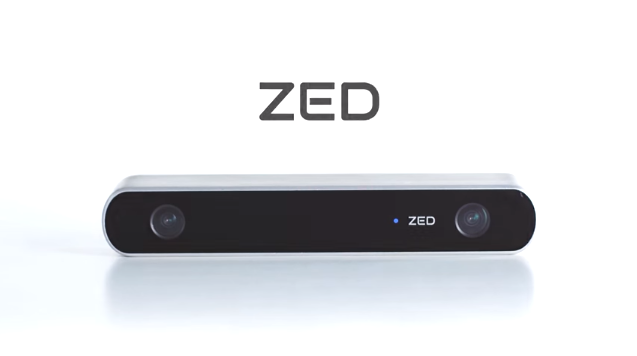While mobile virtual reality (VR) head-mounted displays (HMDs) such as Samsung’s Gear VR or Google Cardboard have undoubtedly helped push the technology into the mainstream, they lack certain features to make them truly immersive. One of those is positional-tracking, the ability to move in and around a virtual world, which more advanced HMDs like Oculus Rift and HTC Vive have. Now Stereolabs a San Francisco-based company that specialises in depth and motion sensing solutions, has launched its ZED camera for mobile headsets.
Normally positional-tracking requires the use of external equipment that monitors the HMD, sending information back to the computer. Now with Stereolabs’ headset-mounted ZED depth sensor the camera tracks the user’s position and orientation in space.
“Positional tracking is the difference between looking at a virtual world, and living in it,” says Cecile Schmollgruber, CEO of Stereolabs. “Now every developer has access to it. The next wave of VR headsets is going to be way better than the current generation.”
There are two parts to ZED’s technology. The first are two RGB cameras feeding their signal to an external GPU, where Stereolabs’ software calculates a real-time depth map from the disparity between the images. Called stereovision, the technique claims the advantage of working at long ranges and outdoors over IR-based sensors. The second part is the camera’s software, this uses a technique called stereo SLAM (Simultaneous Localization and Mapping) to map the three-dimensional world in front of it in real time and understand how the user moves in space.
“This is just the first step. We’re already working on a package that makes it better and easier to integrate,” continues Schmollgruber. “After that, we’re not at liberty to say. But we’ve got big news coming up.”
It’s this kind of technology that mobile VR headsets need to compete with the more expensive and tethered PC-based devices. This would now allow users to fully wander round virtual worlds in complete freedom.
The ZED Camera can be purchased from stereolabs.com for $449.00, where a positional-tracking update to the software development kit (SDK) can also be located.
VRFocus will continue its coverage of Stereolabs and ZED Camera, reporting back with any further announcements.















